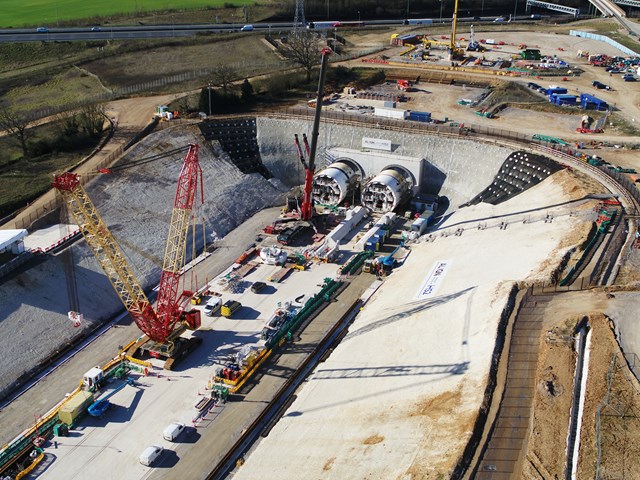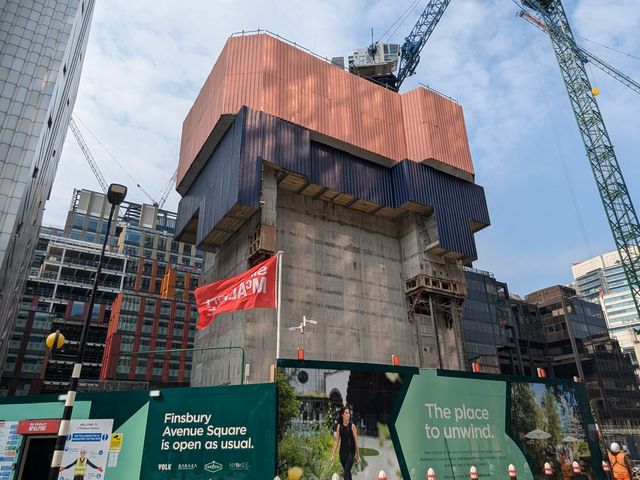Right Contractor for a Commercial Project

When undertaking a commercial project, whether it’s building a new office space, renovating an existing building, or constructing a retail store, one of the most critical decisions you’ll make is choosing the right contractor. The success of your project depends on the contractor you hire, and selecting the wrong one can lead to delays, cost overruns, and poor-quality work. In this blog post, we will guide you through the key factors to consider when choosing a contractor for your commercial project, ensuring that you make an informed decision that will lead to a successful and stress-free outcome.
1. Understand Your Project’s Needs
Before you begin searching for a contractor, it’s important to have a clear understanding of your project’s requirements. Commercial projects can vary significantly in scope, complexity, and type of work required. Take the time to define the project goals, budget, timeline, and specific services you need, such as design, permitting, or specialized construction tasks.
This step will help you narrow down potential contractors to those who have experience and expertise in the specific area of your project. For example, if you’re building a retail space, you’ll want a contractor with experience in creating high-traffic areas and understanding retail design. On the other hand, if you’re undertaking a large-scale office renovation, a contractor with experience in tenant improvements might be a better fit.
2. Do Your Research
Once you have a solid understanding of your project, start researching contractors in your area. This is the stage where many project owners make the mistake of rushing into hiring the first contractor they find. While it may be tempting to choose a contractor based on recommendations from friends or online reviews, it’s important to conduct thorough research. Check here for a list of reputable contractors in your area or consult local business directories to narrow down your options. Look for contractors who specialize in commercial projects, as they will be more familiar with the unique challenges that come with such work. Check the contractor’s website, portfolio, and online reviews to get a sense of their reputation and past work. You may also want to ask for references from previous clients to get an idea of their reliability and work quality.
3. Verify Credentials and Licenses
It’s crucial that the contractor you hire holds the necessary licenses, certifications, and insurance required by local regulations. Working with an unlicensed or uninsured contractor can expose you to legal and financial risks.
Start by verifying that the contractor has the appropriate state and local licenses to perform commercial construction work. These licenses are typically issued by government agencies and ensure that the contractor meets specific standards for quality and safety. Additionally, check if the contractor has insurance coverage, including general liability insurance, worker’s compensation, and any other policies required for commercial work. This protects you in case of accidents, property damage, or legal disputes during the project.
4. Review Their Portfolio and Experience
A contractor’s portfolio is one of the best ways to gauge their expertise and capabilities. Review their past projects, paying attention to the quality of the work, the scale of the projects, and the industries they have worked with. If you’re working on a retail or office space, for example, check if they have completed similar projects for businesses in your industry.
While reviewing their portfolio, also consider how long they’ve been in business. Experienced contractors often bring a wealth of knowledge and a network of skilled subcontractors, which can help ensure your project runs smoothly. A contractor with a proven track record of completing projects on time and within budget is more likely to deliver the results you expect.
5. Assess Communication and Transparency
Clear communication is crucial to the success of any commercial project. A contractor should be able to communicate effectively and regularly with you about the progress of the work, any potential issues, and changes to the timeline or budget.
During the initial consultation, assess how well the contractor listens to your needs and responds to your questions. Are they open to feedback and suggestions? Do they provide clear, detailed explanations of how they plan to execute the project? A contractor who is transparent about costs, timelines, and potential challenges will help set realistic expectations and reduce the chances of misunderstandings later on.
6. Get Multiple Bids
Once you’ve narrowed down your list of potential contractors, request bids from at least three different companies. This will give you a sense of the range of prices for your project and help you determine whether a contractor’s proposal is reasonable and competitive.
Be cautious of contractors who offer significantly lower bids than others. While it may seem like a good deal, a low price could indicate that the contractor is cutting corners or doesn’t have the necessary resources to complete the project. On the other hand, don’t automatically choose the highest bidder, either. Price should not be the only factor in your decision-making process. Ensure that the bid includes a detailed breakdown of costs, including labor, materials, and any additional fees.

7. Check for Subcontractor Relationships
In most commercial projects, contractors will hire subcontractors to handle specific tasks, such as plumbing, electrical work, or HVAC installation. While subcontractors can be a great asset to a project, it’s important to ensure that the contractor has established relationships with reliable, skilled subcontractors.
Ask the contractor about their subcontractor network and how they manage these relationships. Are the subcontractors licensed and insured? Do they have a history of completing work on time and to a high standard? The contractor’s ability to manage subcontractors effectively is a key factor in the overall success of your project.
8. Discuss Project Timelines
Every commercial project has a set timeline, and delays can be costly. When hiring a contractor, make sure to discuss project timelines upfront and ensure that they are realistic and achievable. A good contractor will provide a clear schedule outlining key milestones and deadlines throughout the project.
While unforeseen circumstances such as weather conditions or supply chain issues can sometimes cause delays, a reputable contractor should have a plan in place to mitigate such risks. Make sure to include penalties for delays in the contract to protect yourself and your business.
9. Look for a Contractor with Strong Project Management Skills
Commercial projects often involve multiple moving parts, including scheduling, budgeting, procurement, and quality control. A contractor with strong project management skills will help ensure that these elements are coordinated efficiently, reducing the likelihood of delays and cost overruns.
Inquire about the contractor’s project management process. How do they handle project oversight? Who will be the main point of contact throughout the project? Having a dedicated project manager who can handle day-to-day tasks and ensure that everything stays on track can make a significant difference in the success of your commercial project.
10. Trust Your Instincts
Finally, trust your instincts when choosing a contractor. Even if a contractor looks great on paper, it’s important to feel comfortable working with them. You’ll be collaborating closely with the contractor for months, so it’s essential to have a positive working relationship. If something feels off during your interactions or if you’re unsure about their professionalism, it may be a sign to look elsewhere.
Conclusion
Choosing the right contractor for a commercial project is a critical step toward ensuring that your vision is brought to life successfully. By following these steps—understanding your project’s needs, researching contractors, verifying credentials, assessing experience, and maintaining clear communication—you can make an informed decision that will help you navigate the complexities of construction work. A well-chosen contractor will not only deliver quality work but also provide the peace of mind needed to focus on your business while the project progresses smoothly.



